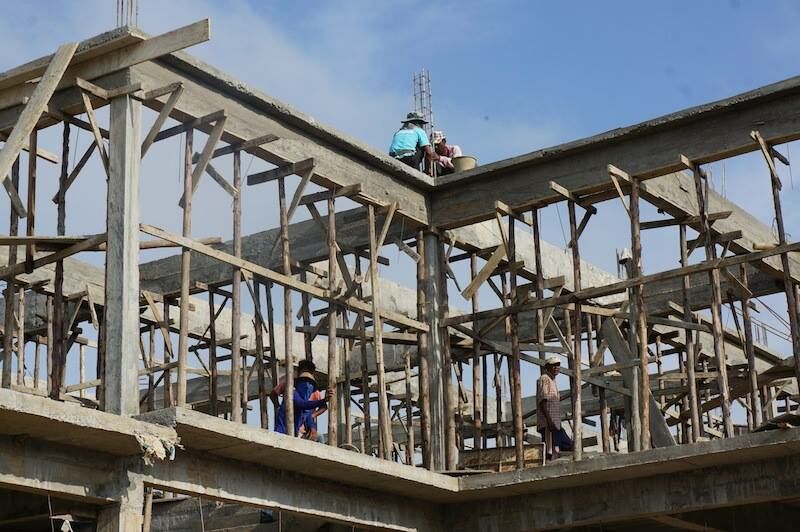Arrogant Thai construction company rips off Myanmar migrant workers

An arrogant Thai construction company has been ordered to cough up wages it refused to pay to its migrant workers earlier this year. The arrogance of the unnamed building firm is underlined by the fact that no representatives came to court to defend or justify its action.
The Labour Court in Phuket told the construction company to settle three months’ salary, plus interest, it owes to six migrant workers from Myanmar after they filed a complaint with the Human Rights and Development Foundation (HRDF), reported Prachatai.
HRDF revealed that six workers were hired to work at a municipal school building site in Phang Nga in January – March 2022.
The workers and the HRDF met the employer to discuss the non-payment of salaries. The employer agreed to pay the workers in four instalments but failed to follow it through.
Exasperated, the workers then filed a complaint with the Phang Nga Provincial Office of Labour Welfare and Protection on May 19. The office then issued an order instructing the employer to pay their outstanding wages of 35,260 baht plus interest of 15% per year until the debt is settled.
HRDF said that the employer acknowledged the order but failed to challenge it with the court within 30 days.
The Myanmar six then filed another complaint with the Labour Court Region 8 in Phuket asking the court to order the employer to comply with the Labour Inspector’s order.
The hearing was scheduled on October 28 but the employer did not turn up to court.
The court in an ex parte hearing ordered the company to pay the workers their outstanding wage plus a late interest rate of 15% per year until the debt is settled.
HRDF lawyer Kritsada Sunyadee revealed that when migrant workers are hired as subcontract workers in a public building construction project, which has to undergo a bidding process as required by the 2017 Public Procurement and Supplies Administration Act, the project is also required to ensure that it generates optimal benefit to the state.
It must also make the most value for money, and be transparent, efficient, effective, and accountable.
Kritsada said that the law still lacks human rights due diligence requirements. He added that there have been several cases of labour rights violations against migrant workers employed in public construction projects. Furthermore, they have been examples of where workers have been injured on-site but denied compensation.
Kritsada called on the Thai government to amend the law so that public agencies are required to conduct human rights due diligence on any private organizations and state enterprises that may benefit from the procurement process of the state.
In July, Thailand’s Chamber of Commerce insisted it was addressing the shortage of migrant workers needed to help boost the nation’s economy.
The Department of Employment director-general, Pairoj Chotikasathien, said more foreign workers from Cambodia, Laos, Vietnam, and Myanmar are returning to work in Thailand now Covid-19 restrictions had been lifted and expected about 100,000 to come from Myanmar by the end of this year.
If Thailand continues to treat its migrant workers with contempt, they won’t come and the economy will suffer because of it.
Latest Thailand News
Follow The Thaiger on Google News:


























